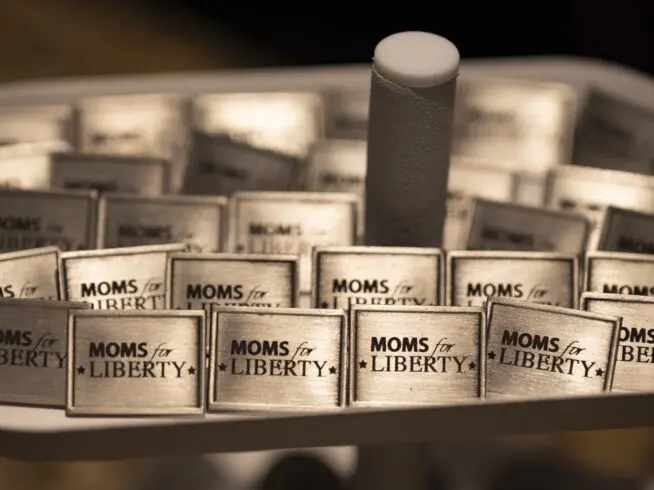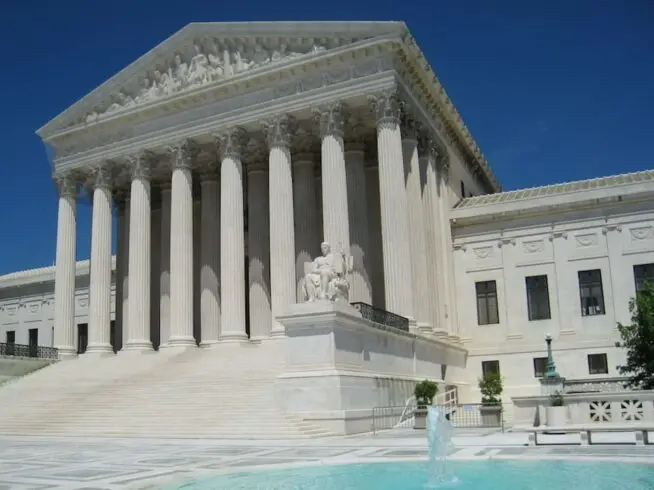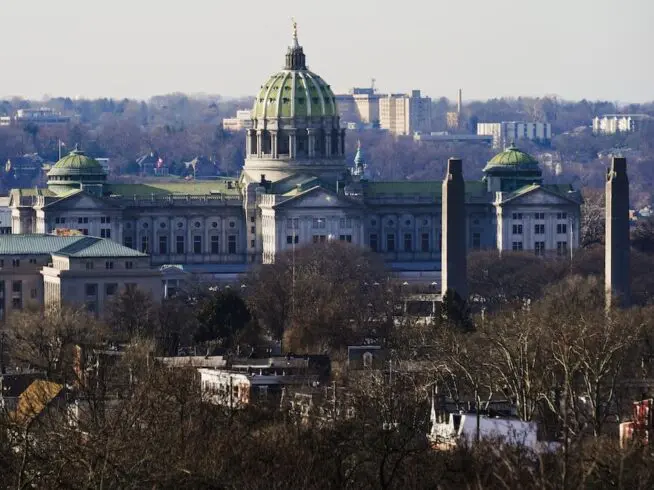How Pennsylvania’s judicial elections could impact the state’s future
This fall’s elections could have major implications for 2025, when voters will choose whether to keep three of the court’s Democratic justices.
Though it may be an off-year for most elections, Pennsylvania voters will cast their ballot in several statewide elections in November that could have enormous consequences for the future of the state.
There are five partisan judicial races: a Supreme Court seat, a Commonwealth Court seat, and two Superior Court seats. State judicial elections don’t typically get much attention or voter turnout, especially if the election won’t change the balance of power in the court. The outcome of these five elections, however, could have enormous implications down the line for the future of democracy in the Commonwealth because of how they’ll shape the partisan makeup of the courts for future elections.
Pennsylvania is one of seven states that hold partisan elections for justices to serve in the state court system. When Supreme Court Justice Max Baer died on September 30, 2022, it left a vacancy on the Pennsylvania Supreme Court. The election to fill the open seat is between Daniel D. McCaffery, a Superior Court judge running as a Democrat, and Carolyn Tornetta Carluccio, a judge on the Montgomery County Court of Common Pleas who’s running as a Republican.
Democrats currently hold a 4-2 majority on the state Supreme Court, which means that the outcome of this election won’t change the partisan balance of the court. Still, the results of this fall’s elections could have major implications for 2025, when three of the state’s Democratic justices are up for a retention vote.
“We see across the country how important state Supreme Courts have been in protecting our rights,” Kadida Kenner, the CEO of the New Pennsylvania Project, a voting rights and social justice organization, told the American Independent Foundation. “And all the stakeholders that we are concentrating on, who we serve in this work in Pennsylvania, are going to be counting on the Pennsylvania Supreme Court to protect access to abortion, protect our voting rights themselves, protect the LGBTQ rights in the Commonwealth, and other issues that those that we center in our work care about.”
Below the Supreme Court, there are two intermediate appellate courts: the Commonwealth and Superior Courts. There’s currently an open seat on the nine-person Commonwealth Court. Much like the Supreme Court election, the result of the election won’t change the court’s 5-3 Republican majority. But if the Democratic candidate wins, it will put Democrats within a one-seat majority for the next election. The race is between Democrat Matt Wolf, a Philadelphia Municipal Court justice, and Republican Megan Martin, a former U.S. Navy attorney.
“The Commonwealth Court makes decisions based upon the Pennsylvania Constitution as well,” Kenner said. “And regarding agencies — clean air and water, making sure that the water that we drink is good for us to have … school funding, coming out of the Commonwealth Court, determining that Pennsylvania has one of the most equity-funded school systems in the country. These are decisions heard about by Commonwealth courts here in Pennsylvania.”
The state’s other second-highest court, the Superior Court, also has an election in November to fill two open seats. On the Democratic ticket, attorney Jill Beck and Philadelphia Common Pleas Court Justice Timika Lane are running, while the Republican ticket includes attorney Maria C. Battista and Westmoreland County Common Pleas Court Justice Harry Smail.
The Superior Court doesn’t rule on cases that can have wide-ranging effects on the Commonwealth in the same way that the Supreme Court and Commonwealth Court do. Rather, the Superior Court rules on most civil and criminal cases in the state.
While many of these judicial elections historically fly under the radar in Pennsylvania, Kenner hopes that voter outreach can help increase turnout in the upcoming election.
“It’s really important for organizations like ours… to really educate Pennsylvanians about why it’s so important to vote all the way down the ballot in these judicial races,” Kenner said. “There’s a lot of things that voters do, particularly here in Pennsylvania, because they are not provided the information to civic education, they need to really make a good decision on Election Day.”
Published with permission of The American Independent Foundation.




